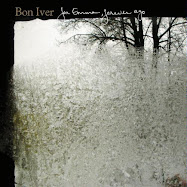-
Kirsty Mitchell's mother was an English teacher who spent
her life inspiring generations of children with imaginative stories and plays.
When her mother died from a brain tumour in 2008, Kirsty
channelled her grief into her passion for photography and created Wonderland,
an ethereal fantasy world. The photographic series began as a small summer
project but grew into an inspirational creative journey.
"Real life became a difficult place to deal with, and I
found myself retreating further into an alternative existence through the
portal of my camera," Kirsty said in an interview with British newspaper
Daily Mail in May.
"This escapism grew into the concept of creating an
unexplained storybook without words, dedicated to her [my mother], that would
echo the fragments of the fairytales she read to me constantly as a
child."
Kirsty, who has a background in fashion and costume design, collaborated with hair and make-up artist Elbie Van Eeden to create these images. They created props, wigs, and sets using a tiny budget and shot in the woodlands surrounding Kirsty's home in Surrey, south of England.
I have been observing someone grieve over a lost love recently. We are not particularly close, but having gone through something similar, I feel for him. His thoughts and actions made me realize perhaps all grieving is the same. There's an emptiness, a longing for the lost one. And despair.
Tragedy strikes us and we are often caught unaware. Some turn to alcohol to numb the senses, others to drugs or sex to escape reality, while some lose all desire to live. The pattern is similar: there is a loss, the person suffers, and then begins the long and arduous journey back home.
Looking at these photographs, I am reminded once again of the mystery of life. That something so beautiful could come from something so painful. Perhaps human suffering is as important as happiness. Perhaps it is the root of all beauty, all pathos in this world. The knowledge that most things in this world is finite; and therefore we strive to find meaning in our lives, the search for that which is infinite.
This is my favorite photograph of Kirsty and Elbie. No matter how cold the winter is, spring will always come.
"For I have known them all already, known them all—
Have known the evenings, mornings, afternoons,
I have measured out my life with coffee spoons;
I know the voices dying with a dying fall
Beneath the music from a farther room.
So how should I presume?"
Have known the evenings, mornings, afternoons,
I have measured out my life with coffee spoons;
I know the voices dying with a dying fall
Beneath the music from a farther room.
So how should I presume?"
---The Love Song of J. Alfred Prufrock by T. S. Eliot
-








2 comments:
grotesquely scintillating
Art is a revolt against fate. All art is a revolt against man's fate
- Andre Malraux
There was an old romantic notion that somebody had to suffer first before he could produce an authentic work of art. Hence the term "tortured artist" and the deification of the likes of Van Gogh, Hemingway, Plath, and others.
Many poseurs and hacks have assumed the mantle of "tortured artists" over the centuries. They present themselves as "misunderstood" and their art "misinterpreted" in order to mask either the lack of talent, or authenticity, or both.
Nevertheless, I believe that there may be a kernel of truth in the necessity of having undergone what the Bard so famously referred to as "the slings and arrows of outrageous fortune" before one arrives at that moment of artistic revelation. A personal yet paradoxically, universal journey, the insights of which are then expressed in one's work, for others to recognize as true and resonant with their own experiences of being human.
Our sufferings are like the tons of pressure over great time that transform coal into diamond. Perhaps, dear Kane, that answers your question about how beautiful things can sometimes come from human suffering and grief. When we think about it that way, the question becomes more real, less surreal.
Perhaps that cinematic master of the surreal, Federico Fellini, said it best: "All art is autobiographical. The pearl is the oyster's autobiography."
Post a Comment